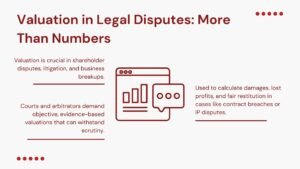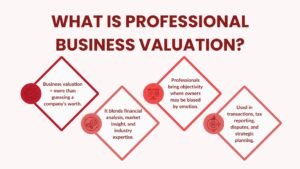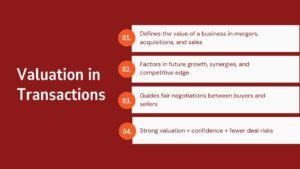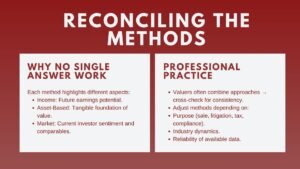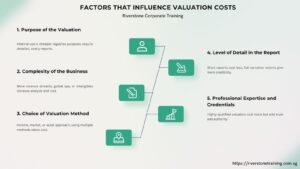In-House Training on Business Valuation Understanding Company Worth
In-House Training on Business Valuation: Understanding Company Worth
In the modern business world that rapidly transforms, the ability to know how to identify the real value of company becomes one of the most practical skills of finance, investing, and corporate practitioners. It can be mergers and acquisitions, fundraising, internal organization and business communication, either way, sound decision-making depends on proper business valuation. On-the-job training on business valuation will provide organizations with the means and expertise to recognize company value based on both the financial and operational aspect areas.
In-house valuation training is not generic (as compared to generic workshops) but rather specific to an organization, industry in which the organization operates, market, and the internal requirements of the organization. It enables finance and management teams, and executives to create valuation capabilities that are in line with their corporate objectives. This happens through hands-on activities, case studies, and learning by scenario to have a better understanding of the techniques and pitfalls of the proper valuation of businesses, similar to what is offered in a business valuation course Singapore for finance professionals.
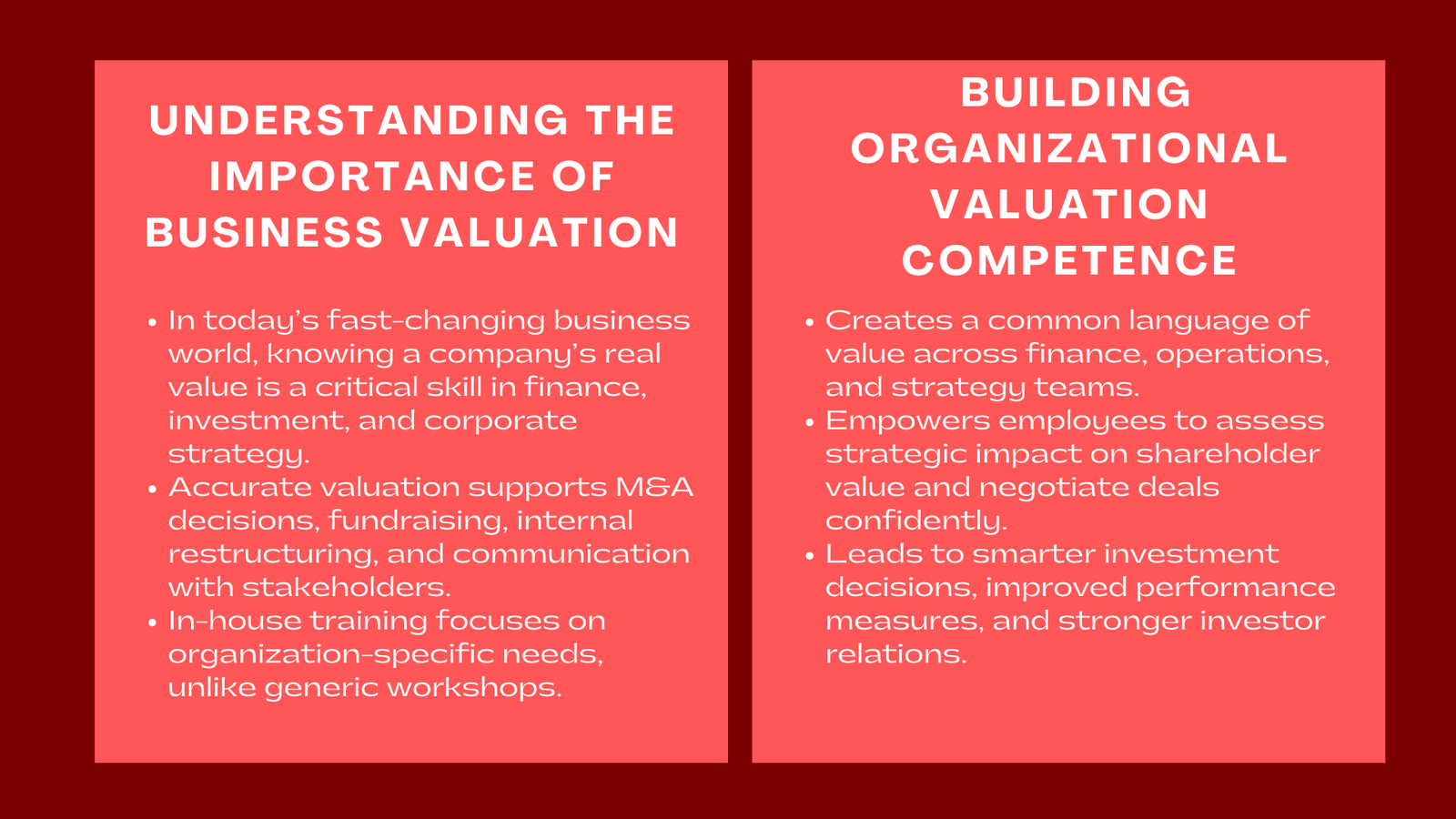
The Core Concepts of Business Valuation
Deep within the roots of business this is the business valuation, the estimation of economic worth of a business. It is a combination of economic analysis, financial analysis as well as professional judgment. Most in-house training in valuation normally starts with familiarity of the participants with the major methods of valuation.
The Income Approach, which is headed by the Discounted Cash Flow (DCF) model, values are determined by taking into account the present value of future cash flows (which are expected to be obtained). This will need a thorough knowledge of the cash flow forecasting, cost of capital determination, and risk assessment. The Market Approach relies on comparisons of publicly-traded companies or previous transactions, and assists analysts to make comparisons with other similar companies in the same industry. The Asset-Based Approach centres around the fair value of the tangible and intangible assets of the company and is typically applicable to the cases of an asset-intensive company or in the liquidation process. These methods highlight the business valuation advantages for finance leaders in Singapore, equipping them with practical tools for informed financial decision-making.
The participants also investigate the role of industry developments, macroeconomic environment, and firm-specific components in terms of their effects on valuation results. At the conclusion of the training, they learn not only how to know the value, but when to apply a specific method of managing situations.
Tailoring Valuation Techniques to Business Needs
The benefit of in-house training is that it will provide tailored business-model valuation techniques to the company. An example of this is when a manufacturing company is concerned with tangible asset valuation whereas a technology start-up may be concerned with intangible assets like intellectual property or brand name. Incorporation of real financial data of the company in exercises is another common among the trainers, so a learning experience turns out a very practical and relevant one.
Besides, the training examines real-life valuation issues in preparing IPO valuations, evaluating new projects, as well as valuation of internal reorganization or ESOP allocation. Teams also get to know how to make adjustments in regard to market volatility, currency fluctuations and regulatory aspects. This is similar to How to value an asset management firm Singapore training, providing employees with practical skills to assess and interpret company worth accurately.
Interactive workshops allow employees to have real-life experience in creating valuation models using Excel, results interpretation, and presentation to the management.
Building Organizational Value Competence
The departmental decision-making is massive when teams learn to embrace businesses in an effective manner. Finance specialists are in a position to determine how the strategic initiatives impact on the shareholder value and the executives can be able to negotiate deals or funding better.
Training inside the company creates a common language of value in the organization – allowing congruence between the finance, operations and strategy teams. The resulting understanding is smarter investment, performance measures and improved investor relationships.
Conclusion to In-House Training on Business Valuation Understanding Company Worth
One of the most strategic and practicable skills in current finance is business valuation training that the teams have within their in-house training. It enables the employees to know how value can be created, measured and maintained through business cycles.
Customized valuation training is a valuable investment to organizations that would like to enhance their financial literacy, integration of strategic decision making, and communication with investors. Learning the art and science of valuation within companies would allow companies to open up new challenges of confidence and accuracy in each financial decision they take.



